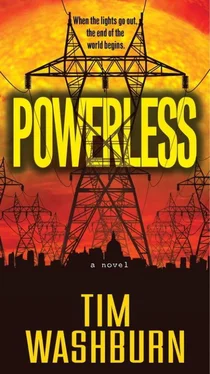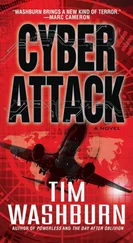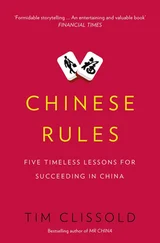“I don’t. Could’ve been something else, but I know there’s an increase in solar activity. And it happens more than you’d think.” In addition to being a civil engineer, his father has a passionate interest in science. A real nerd, a designation he happily embraces.
“Why would it stop and restart?”
“It’s like a circuit breaker in your house. A sudden spike will trigger the breaker, so you have to reset it. Same principle applies to the electric companies, but the breakers are much bigger with a different configuration, but the same general idea. Too much of a sustained overload and you could fry the transformers.”
Some of that Zeke knew from his days in Afghanistan, where the electrical service had been as unreliable as a 1985 Yugo. But not for the soldiers, who had all the generating power needed, thanks to Uncle Sam. The lights flicker back on and Zeke reaches down and flips the planer’s switch. His dad stands on the out-feed side as Zeke keeps the board straight until the machine’s feeder pulls it into the blades.
Once the board is finished, he hits the kill switch with his knee. “So that’s it? A little hiccup?”
“Hope so,” his father says. “What do you want me to do?”
Zeke points to an almost-complete table on the other side of the workshop. “How about a delicate sanding on that table?”
“You got it.” He walks to the workbench area and begins thumbing through the different grits of sandpaper arranged in an organizer. Zeke watches his father as he carefully removes a piece of sandpaper. As a teenager he chafed against that sternness, stiffness, or whatever it was, but now he admires his father for his decisiveness, his attention to detail. His hair is grayer and thinner, the creases on his forehead are a little deeper, but his mind appears to be as sharp as ever.
As Zeke turns away and carries the now-smooth board to the radial arm saw, the lights in the shop flicker again. He glances back at his father to find him staring at the light fixtures as if it’s a problem with them. Not likely, with his careful electrical work, including precise voltages for each run of the wire.
“We have a backup generator, right?” Zeke says.
“Yes, it’s tied into the propane tank. As long as we have propane, we’ll have power. Shouldn’t be a problem.” He returns to sanding. Then he stops. “Could be a tree grounding out one of the high lines,” he mutters.
“What’s that, Dad?”
“Nothing, just talking to myself.” Then, “When we first moved down here, the electrical service was spotty, but they built a new substation outside of town that was supposed to fix it. And it did. I hope it’s not something else.” There’s a new note of concern in his voice.
The White House Situation Room
Wednesday, September 29, 9:13 A.M.
President Harris steps into the Situation Room with Ambassador Nelson in tow. Every head in the room turns at their entrance and some people begin to stand, but the President waves them down. There are some raised eyebrows at the appearance of the British ambassador. Scott Alexander slips into the room behind them and takes a seat toward the rear. The President nods to the advisors arranged around the large conference table, pulls out the chair with a presidential seal embroidered on the back, and sits. Ambassador Nelson, half a foot shorter and about sixty pounds heavier than the President, takes the chair next to him.
The cold fluorescent lighting reflects off the polished wooden surface of the large table, which is surrounded by a dozen leather swivel chairs. Another thirty or so chairs are parked along the outer perimeter of the rectangular room, hugging the light-colored walls, which are dressed with a dark wood wainscoting along their bottom. There are large video displays mounted around the room, but the front wall is reserved for a much larger white screen lit by an overhead projector. Dark blue carpet runs from wall to wall, alleviating some of the coldness of the room.
“Who’s on the videoconference?” the President says.
A staffer quickly hands him a typed sheet that details the names and their job titles, along with short bios. He scans down the list, passing over one bureaucrat after another until his eyes alight on the two Ph.D.s on the list. He scans their brief biographies. Most of the others taking part in the videoconference will be just background noise—these two will have the answers , the President thinks. He rereads the bios of Dr. Samuel Blake at the Space Weather Prediction Center and Dr. Sarah Garcia, an air force major at that agency’s weather center.
“Thirty seconds, Mr. President,” someone shouts over the murmur of voices, which die down. The large screen is divided into boxes showing the faces of the videoconference participants. The President scrutinizes the faces and focuses on trying to sort out who’s who. Before he can ask, a name and a title appear under each box.
The boxes are arranged horizontally, with four frames per row, two rows stacked vertically. There are seven people on-screen: director of NASA, director of FEMA, secretary of commerce, and the under secretary of commerce in charge of NOAA, a scientist herself, but a couple of the others President Harris has never met. Joining him in the Situation Room are the other directors—Homeland Security, FBI, SECDEF, SECSTATE, and National Security, whose organization is tasked with running operations in the Sit Room. Of course the chairman of the Joint Chiefs is present in his dress uniform, his chest adorned with an array of colored ribbons. The President takes a moment to survey the faces of those surrounding him before turning his gaze to the screen. He realizes that the only people with real looks of concern are the two scientists.
“Good morning to all of you and thank you for joining us,” President Harris says. A few offer return greetings. “Dr. Blake, I understand you’re the one who initiated this gathering. Will you please explain why?”
The small box representing Dr. Blake zooms full screen, the perspiration on his forehead evident as his face fills the wall. “Thank you, Mr. President. A little over”—he pauses to glance at something outside camera range—“three hours ago we were alerted to a massive coronal mass ejection from the surface of the sun. A CME, for those of you who don’t know, is a storm seething with gas and charged plasma, full of energy particles embedded in a magnetic field.” Sam pauses for a quick sip of water.
“Dr. Blake,” says the President, “most of us have been briefed on solar storms, so why don’t we get to the heart of the matter? Three questions need immediate answers. What makes this storm unusual? Why do you think the storm will hit here? And most important, if it does strike our planet, how long do we have?”
“This storm is different because of its size, sir. It’s massive. The Advanced Composition Explorer satellite—ACE—that orbits about a million miles from the Earth between our planet and the sun, went dark almost two hours ago. It was the only tool we had to determine the storm’s path, and unfortunately it was also the only tool we had available to determine the arrangement of our planet’s magnetic fields. A crucial piece of information we need to determine the severity of the impact.
“So the arrival time is only an educated guess at this point. Some of my colleagues have suggested a time frame for CME arrival at Earth anywhere between one to three days. Several factors play a part in these guesstimates based on speed and size. But the only storm in recorded history of this magnitude occurred in 1859, and the effects of that storm were felt on Earth after only seventeen hours. That estimate was calculated using crude instrumentation, so I don’t know how reliable or precise those observations were. This solar storm is larger than the Carrington event and I believe it will only accelerate as it advances, sometime in the next ten to fourteen hours.”
Читать дальше












